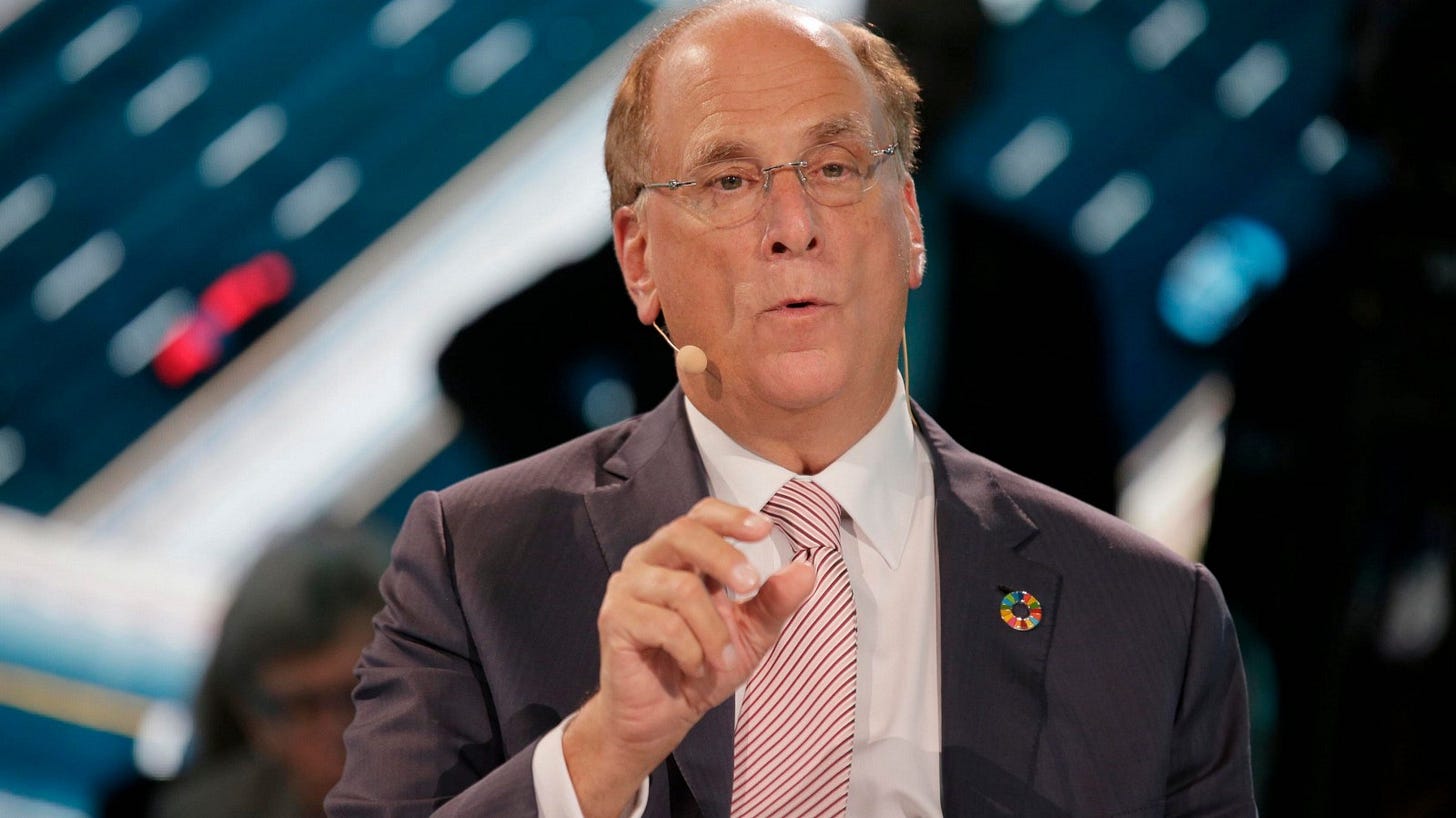Is a New World Monetary Order Emerging? BlackRock CEO Larry Fink Believes So.
Under these conditions, it is out of the question to leave aside the hydrocarbon companies.
The world order that has been in place since the end of the Cold War is over for Larry Fink the CEO of BlackRock. Here is what Larry Fink said in his annual letter sent to BlackRock shareholders, which was published on March 24, 2022:
“The Russian invasion of Ukraine has ended the globalization we have experienced over the past three decades.”
Less politi…
Keep reading with a 7-day free trial
Subscribe to Sylvain Saurel’s Newsletter to keep reading this post and get 7 days of free access to the full post archives.


